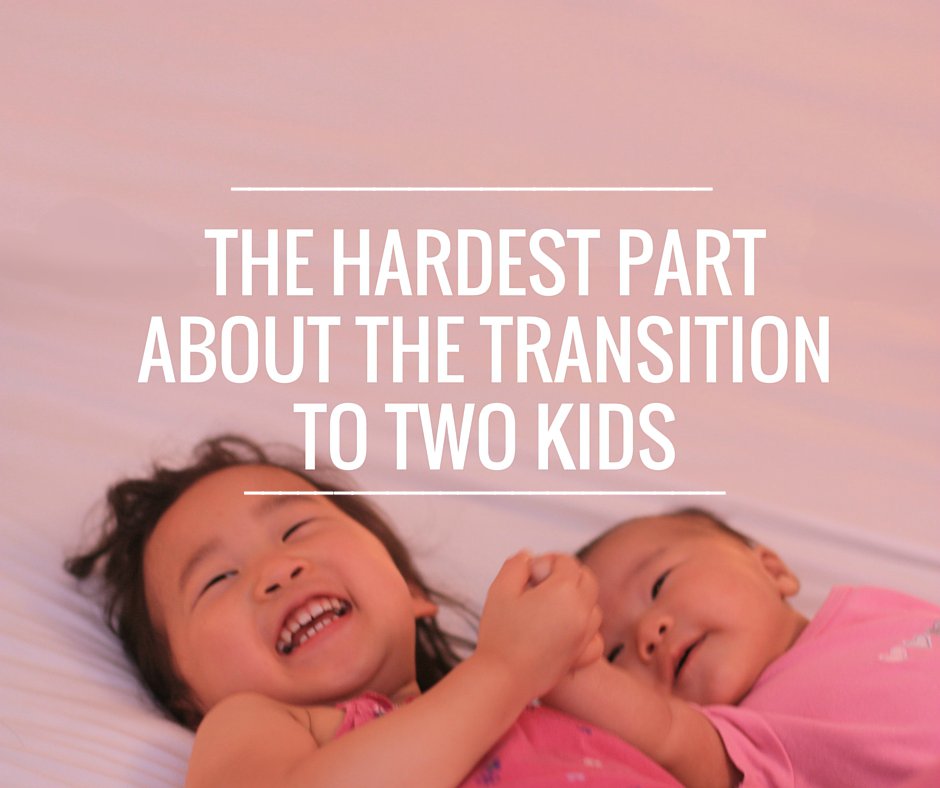There were many difficult things about the first year with two children. There was the adjustment of trying to split our attention to meet the needs of both kids. There was the challenge of trying to get sufficient rest when they’d take turns being awake during the day and then take turns waking us up at night. There was the strain on our marriage and trying to stay connected when each of us barely coped with our own responsibilities. There was the seemingly futile fight against germs as colds got passed around and around in the winter months. But as I thought about it, I realized that the hardest part of the transition for me wasn’t something external. It was asking for and accepting help.

On our second child, Kayla’s, first birthday, I sat down and wrote a list of all the different sources of help I’d received in that year. I easily came up with a dozen.
For someone who always tries to be independent and competent at life, reaching out for help really stretched me to accept my limits, to let go and trust other people. As a recovering perfectionist, asking other people to do things I usually did was an exercise in accepting generosity with gratitude and, at times, biting my tongue.
Asking for help wasn’t as hard for things I had no knowledge in; for example, asking the local leader of La Leche League for breast feeding advice. Or seeking pain relief from my massage therapist or chiropractor.
What was harder was accepting help for things I could usually do myself. Having meals cooked for us by people from our church. Spending a bit more money and getting groceries delivered, or buying take out more often. Even arranging for babysitting was a bit out of my comfort zone.
The very hardest areas to ask for help in were the aspects of me that felt the most vulnerable. For a few months, we hired a housekeeper who came twice a week to help us keep afloat of our laundry, dishes and cleaning. It felt embarrassing to have someone come deal with all our mess and dirt. To pay someone to scrub our toilets and fold our underwear.
When sleep deprivation had me at my worst, I called the support line at the Pacific Postpartum Support Society (one of the best decisions I made). It was difficult to admit that I was mentally unwell. Along with that, I contacted a sleep consultant to ask for advice about Kayla’s sleeping. Making that call was hard on my parent ego. A mother should know how to put her child to sleep, right? Perhaps the ultimate humbling act was asking a friend if I could sleep at her place for three nights in an attempt to stem the tide of postpartum depression.
It was so hard to admit that I needed help for such basic things as sleep and food. I had managed fine with one child. Why couldn’t I with two?
I felt exposed, like my strength was not enough. I desperately wanted to be able to do it all. But I could not. I felt like somehow I should be able to handle it all. I was the parent, the adult, the supposedly capable one. Why couldn’t I manage my own family?
And yet, as I reached out, I was met by such grace and kindness. I learned that I was normal, that I was not weak, and that people did not see me as an inconvenience. In fact, they were happy to serve and they wanted to be part of my well-being!
Doing my best didn’t mean doing it all myself. Sometimes, the best thing I could do was acknowledge my limits. And my children were actually better, not worse off with me not trying to do it all. In the process of our family receiving help, my children were exposed to other people and new ways of doing things. As my children heard me say, “I need help,” they learned that they never need to be ashamed to ask for help too. And as my children saw help arrive in various forms, they witnessed the beauty of community.
Together, we experienced every day grace in action.
Having two children humbled me. I’m glad though. Because I’m freer now. I am not afraid or ashamed to ask for help when I need it. Just ask the random dude at the grocery store who lifted a 20-pound watermelon for me because I was carrying my baby with a toddler in tow.
